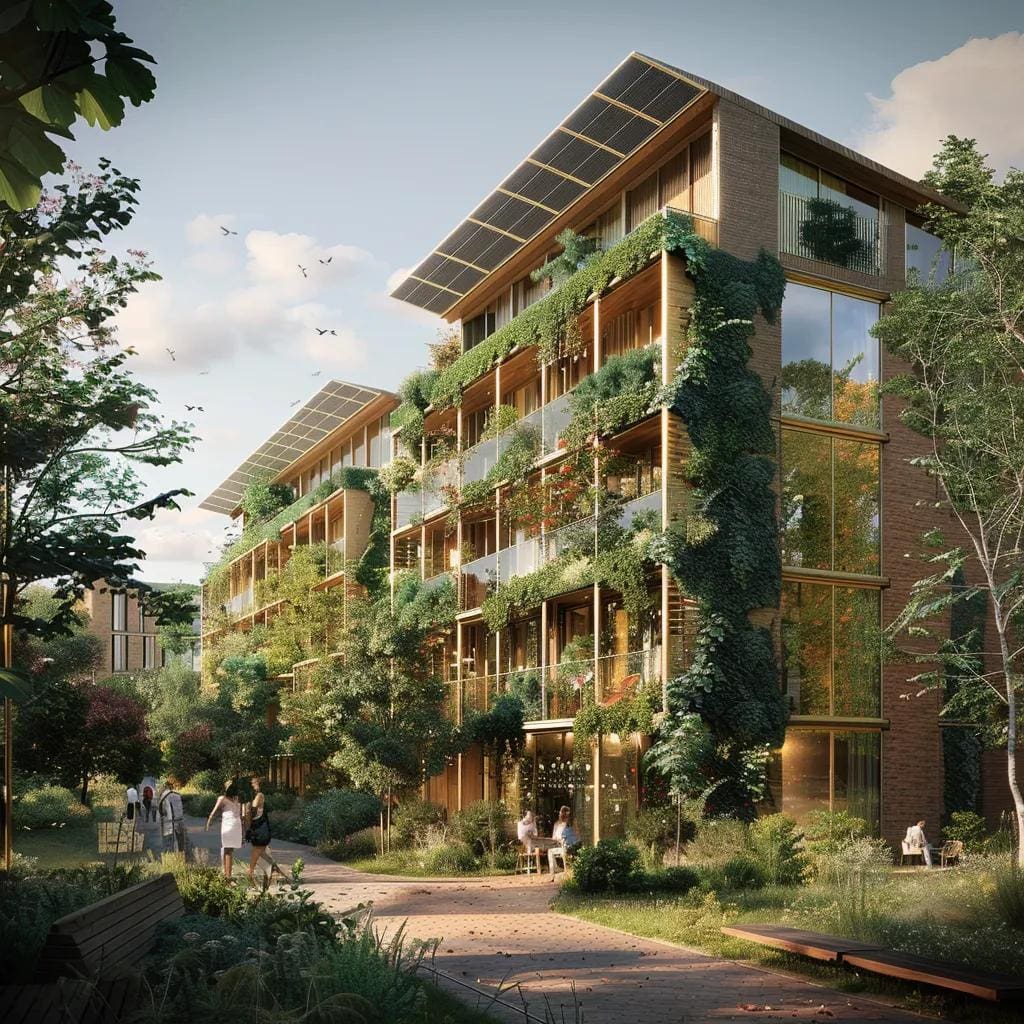Planning Commercial Services Cardiff Projects: What You Need to Know for Successful Business Development

Launching a commercial project in Cardiff demands meticulous planning to navigate local regulations, assemble the right team and control budgets effectively. This guide delivers expert insights into every phase—from initial feasibility through construction, fit-out and cost management—so businesses can proceed with confidence. You will learn:
- The foundational steps for site selection, feasibility and budgeting
- Cardiff Council’s planning permission process and key regulations
- Essential roles of architects, contractors and project managers
- Best practices for construction, fit-out and health and safety
- Strategies for cost control, funding options and rate calculations
- Sustainable building trends, demand patterns and market drivers
- Common pitfalls and proactive solutions to avoid delays
Integrating our specialist commercial consultancy as a resource, this roadmap positions your business to secure permits faster, optimise expenditure and deliver successful developments in Cardiff’s dynamic market.
What Are the Key Steps in Planning Commercial Projects in Cardiff?
Initial planning in Cardiff sets the stage for long-term success by combining market research, site feasibility and legal due diligence. These early actions define project scope, risk and viability.
How to Conduct Site Selection and Feasibility Studies in Cardiff
Site selection involves evaluating location, transport links, zoning and competitive supply. A thorough feasibility study examines market demand, estimated costs and revenue projections to confirm project viability.
- Identify available plots or existing buildings in key commercial districts
- Analyse footfall, catchment demographics and competing businesses
- Estimate build-out costs, lease terms and potential rental yields
- Engage a surveyor for ground condition, utilities access and environmental constraints
A robust feasibility framework aligns location advantages with projected returns, preparing you for regulatory approvals and stakeholder discussions.
What Legal Considerations Affect Commercial Project Planning in Cardiff?
Legal review covers land ownership, lease arrangements and restrictive covenants. Understanding property rights and statutory obligations prevents costly disputes down the road.
- Verify title deeds and any easements or rights of way
- Review existing leases for break clauses and service charge obligations
- Check conservation area designations and listed building statuses
- Ensure compliance with Welsh planning policy and permitted development rights
Addressing legal factors early minimises change orders during construction and supports smooth planning applications.
How to Develop a Realistic Budget and Timeline for Cardiff Commercial Projects
A precise budget and schedule combine cost estimates with resource allocation to keep projects on track. Realistic timelines factor in planning approvals, procurement cycles and seasonal constraints.
- Break down costs by land acquisition, design fees, construction, fit-out and contingency
- Obtain quotations from contractors, including supply chain lead times
- Allow 8–12 weeks for planning permission and 4–6 weeks for building control sign-off
- Implement a Gantt chart to visualise overlapping workstreams and critical paths
Aligning budget milestones with project phases delivers transparency for stakeholders and avoids cashflow bottlenecks during peak construction periods.
How Do You Obtain Planning Permission and Comply with Regulations in Cardiff?
Securing planning permission in Cardiff centres on detailed applications, compliance with Welsh regulations and demonstrating minimal environmental impact. Clear documentation and early engagement with Cardiff Council streamline the process.
What Is the Cardiff Council Planning Permission Process?

Applying for commercial planning permission involves submitting detailed drawings, design and access statements and supporting reports. Cardiff Council reviews proposals against local land-use policies and national planning guidance.
- Pre-application advice meeting with planning officers
- Submission of the full planning application online via the Planning Portal
- Public consultation period (21 days) for neighbour and stakeholder feedback
- Decision notice within 8–12 weeks, subject to validation and complexity
Understanding application types—full, outline or reserved matters—helps tailor submissions and reduce the likelihood of refusal.
Planning Permission Process in Cardiff
The Cardiff Council’s planning permission process involves submitting detailed applications, including drawings and design statements, which are reviewed against local land-use policies and national planning guidance. The process includes pre-application advice, online application submission, and a public consultation period before a decision is made within a specified timeframe.
This citation supports the description of the planning permission process in Cardiff, providing a credible source for the steps involved.
Which Building Regulations Apply to Commercial Properties in Wales?
Building Regulations for Wales set standards for structural safety, fire protection, accessibility, energy efficiency and ventilation. Compliance ensures legal occupation and avoids enforcement action.
| Entity | Regulation Area | Key Requirement |
|---|---|---|
| Part A | Structure | Adequate load-bearing capacity and stability |
| Part B (Fire Safety) | Fire Protection | Fire resistance, escape routes and detection systems |
| Part M (Access) | Accessibility | Level access, circulation space and sanitary provision |
| Part L (Conservation of Fuel) | Energy Efficiency | U-values, building airtightness and efficient HVAC systems |
Ensuring design compliance at the detail stage reduces the risk of costly remedial work during inspections.
Building Regulations in Wales
Building Regulations for Wales set standards for structural safety, fire protection, accessibility, and energy efficiency. Compliance with these regulations is essential for legal occupation and to avoid enforcement actions. The regulations are categorized into different parts, each addressing specific aspects of building design and construction.
This citation provides a reliable source for the building regulations that apply to commercial properties in Wales, supporting the information presented in the article.
When Are Environmental Impact Assessments Required for Cardiff Projects?
An Environmental Impact Assessment (EIA) is required for larger developments or those likely to have significant effects on the environment. Typical triggers include sites adjacent to protected habitats or projects over 1 ha.
- Projects in conservation areas or near Sites of Special Scientific Interest
- Developments exceeding 1,000 m² floor area or 10 hectares in land take
- Industrial installations with emissions or waste management operations
Conducting a screening opinion with Cardiff Council clarifies the need for an EIA, allowing time to commission ecological, noise and traffic studies if necessary.
How Long Does Commercial Planning Permission Typically Take in Cardiff?
Commercial planning decisions in Cardiff average 8–12 weeks from validation, though complex or EIA-triggering schemes can extend to 16 weeks or more. Prompt responses to consultation feedback and section 106 negotiations help keep timescales on target.
Who Are the Key Professionals Involved in Cardiff Commercial Projects?
Building a multidisciplinary team of architects, contractors and project managers ensures each aspect of a development is handled by experts who understand Cardiff’s market.
What Role Do Commercial Architects Play in Cardiff Project Design?
Commercial architects in Cardiff lead building design, spatial planning and regulatory submissions. They translate business requirements into practical layouts while ensuring compliance with planning and building control.
- Develop concept sketches and detailed technical drawings
- Advise on materials, sustainability measures and cost-effective construction methods
- Coordinate specialist consultants (structural, M&E, sustainability)
- Submit design documentation for planning and building control approval
An architect’s local expertise accelerates application approvals and legitimises design proposals in the eyes of planning officers.
How to Choose Experienced Commercial Contractors in Cardiff
Selecting a reliable contractor involves vetting credentials, past project performance and financial stability. Contractors with Cardiff track records understand local supply chains and workforce availability.
- Verify membership of trade bodies (CIOB, RICS) and relevant certifications
- Review case studies of similar commercial projects in Cardiff
- Conduct interviews to assess resource capacity and subcontractor networks
- Compare fixed-price tenders and risk allowances for unidentified works
Engaging the right contractor from the outset minimises variations and supports quality outcomes.
What Are the Responsibilities of Project Managers in Cardiff Commercial Builds?
Project managers oversee project delivery from inception to completion, coordinating budgets, schedules and stakeholder communications. Their proactive control reduces delays and cost overruns.
- Prepare programme schedules, resource plans and cashflow forecasts
- Monitor site safety, quality control and compliance with building regulations
- Liaise with Cardiff Council inspectors, architects and contractors
- Issue progress reports and manage change control procedures
Effective project management is the backbone of timely project delivery and ensures alignment with business objectives.
What Are the Best Practices for Commercial Construction and Fit-Out in Cardiff?
Adhering to industry-leading construction and fit-out protocols safeguards build quality, safety and compliance, delivering a fit-for-purpose workspace.
How to Plan and Execute Commercial Fit-Outs and Refurbishments in Cardiff
Commercial fit-out projects progress through shell-and-core, Cat A and Cat B stages, each with distinct deliverables. Detailed planning avoids rework and tenant dissatisfaction.
- Shell-and-core: Install basic utilities, fire walls and external façade
- Cat A: Provide basic floor finishes, ceilings, lighting and HVAC routes
- Cat B: Implement bespoke joinery, branding elements and specialised M&E fixtures
A clear specification at each stage ensures contractors and designers work to consistent standards and reduces variation orders.
What Health and Safety Regulations Must Be Followed on Cardiff Commercial Sites?
Construction sites must comply with the Construction (Design and Management) Regulations 2015 and Health and Safety at Work Act 1974. Risk assessments and CDM coordination are mandatory.
- Appoint a CDM coordinator or principal designer for risk management
- Maintain site induction, toolbox talks and safety signage
- Conduct regular inspections and accident reporting
- Implement site welfare facilities, PPE protocols and safe access systems
Robust health and safety practices demonstrate due diligence and protect workers, building managers and the public.
How to Manage Quality Control and Building Control Sign-Off in Cardiff
Quality control systems track build compliance with design specifications and regulations. Early engagement with building control officers secures timely sign-off.
- Set up a document register for drawings, specifications and approval certificates
- Schedule pre-inspection meetings with building control at key milestones
- Record inspection outcomes and address non-conformances immediately
- Gather final completion certificates and energy performance documentation
A structured approach to inspections ensures a smooth handover and legal occupation of the premises.
How Can Businesses Manage Costs and Funding for Commercial Projects in Cardiff?
Securing appropriate funding and controlling operational costs are vital to maintaining profitability throughout a commercial project’s lifecycle.
What Are Typical Costs for Commercial Fit-Outs and Construction in Cardiff?
Project costs vary by sector and specification level. Retail, office and industrial fit-out costs reflect different material and M&E requirements.
| Entity | Cost Range (£/m²) | Influencing Factor |
|---|---|---|
| Office Shell-and-Core | 700–1,000 | Façade complexity, services provision |
| Office Cat A | 300–500 | Ceiling heights, lighting design |
| Retail Fit-Out | 600–1,200 | Display joinery, branding integration |
| Industrial Unit | 450–700 | Racking, floor loading, high bays |
Which Funding Options and Financial Planning Strategies Are Available for Cardiff Projects?
A mix of equity, senior debt and grants can optimise your capital structure and reduce financing costs. Public bodies and local initiatives often support sustainable builds.
- Bank loans and development finance for acquisition and construction
- Reinvestment of operational cashflow for refurbishment phases
- Welsh Government Sustainable Building Grants for energy-efficient design
- Tax allowances such as capital allowances on plant and machinery
A tailored funding package balances risk, cost of capital and project cashflows to support long-term ROI.
How Do Business Rates Impact Commercial Property in Cardiff?
Business rates represent a recurring operational cost based on property valuation. Accurate rateable value assessments and reliefs minimise annual outgoings.
- Check the Valuation Office Agency’s assessment and appeal where appropriate
- Apply for Small Business Rate Relief or Rural Rate Relief if eligible
- Budget for transitional rate changes following refurbishment or change of use
Incorporating rate projections into financial models prevents unexpected operating cost increases.
What Are the Latest Trends and Market Insights for Commercial Projects in Cardiff?
Cardiff’s commercial property market continues evolving, driven by sustainability goals, flexible workspace demand and fluctuating labour costs.
How Is Sustainable Building Influencing Cardiff Commercial Developments?

Green building practices—BREEAM certification, low-carbon materials and renewable energy systems—are becoming standard. Property investors favour developments with reduced operational emissions and running costs.
- Photovoltaic panels, air-source heat pumps and high-performance insulation
- Rainwater harvesting systems and greywater recycling for landscape irrigation
- Lifecycle-cost assessments guiding material selection
Sustainable design not only aligns with local policy but also appeals to occupiers seeking lower utility bills and ESG credentials.
What Are the Current Demand Patterns for Office and Industrial Spaces in Cardiff?
Flexible office space demand has grown by 15% year-on-year, reflecting hybrid working models. Meanwhile, e-commerce has driven continued appetite for warehouses and last-mile distribution hubs.
- Central Cardiff sees strong demand for coworking and serviced office providers
- Peripheral estates cater to light industrial, logistics and manufacturing tenants
- Retail conversions focus on experiential uses such as leisure and hospitality
Mapping these trends informs strategic site selection and specification choices.
How Are Labour and Material Costs Affecting Commercial Projects in Cardiff?
Post-pandemic supply chain constraints and skills shortages have stabilised material prices but extended lead times. Labour rates have increased by 8–12% in the last two years.
- Forward purchasing of critical materials to lock in prices
- Partnering with local training schemes to secure skilled labour
- Modular construction techniques to reduce on-site labour hours
Proactive procurement and workforce planning mitigate schedule risk and cost inflation.
What Common Challenges Arise in Planning Commercial Services Projects in Cardiff and How Can They Be Avoided?
Anticipating and addressing typical roadblocks preserves project momentum and protects budgets from unforeseen delays.
What Are the Most Frequent Planning Permission Pitfalls in Cardiff?
Incomplete applications, insufficient design detail and lack of pre-application engagement often lead to refusals or conditions. Early collaboration with planning officers reduces this risk.
- Failing to demonstrate car parking, servicing and pedestrian access
- Ignoring local character, heritage or conservation area guidelines
- Submitting designs without daylight and overshadowing studies
Addressing these elements in a pre-application package minimises refusal rates and accelerates approval.
How to Navigate Local Conservation Area Rules and Restrictions
Conservation areas in Cardiff impose stricter controls on external appearance, materials and landscaping. Specialist advice ensures proposals respect heritage contexts.
- Use traditional roof materials, window styles and surface finishes
- Retain existing boundary walls, gates and landscaping features
- Provide heritage impact assessments where required
Aligning designs with conservation principles preserves local character and secures officer buy-in.
How to Ensure Compliance with Health and Safety to Avoid Delays and Fines
Rigorous site safety management prevents work stoppages and enforcement notices. A comprehensive Health and Safety Plan defines responsibilities, controls and audit procedures.
- Conduct risk assessments for every construction phase
- Provide training, PPE and welfare facilities for all workers
- Appoint a competent CDM coordinator to oversee regulations
Building on early safety planning ensures seamless progress from groundwork to fit-out and final handover, maintaining momentum toward project completion.
Cardiff’s commercial landscape rewards those who prepare diligently, assemble expert teams and anticipate regulatory requirements. By following these best practices—from feasibility and permission through construction, fit-out and cost management—your business can deliver projects on time, within budget and in compliance with all statutory obligations. Partnering with a specialist consultancy accelerates each phase, providing the expertise and local knowledge to turn your Cardiff development vision into reality.
Frequently Asked Questions
What are the benefits of hiring a local consultancy for commercial projects in Cardiff?
Engaging a local consultancy for commercial projects in Cardiff offers numerous advantages. They possess in-depth knowledge of local regulations, market trends, and the planning permission process, which can significantly streamline project execution. Their established relationships with local authorities can facilitate quicker approvals and help navigate potential pitfalls. Additionally, local consultants are familiar with the regional supply chain, ensuring that resources and contractors are readily available, which can lead to cost savings and improved project timelines.
How can businesses ensure sustainability in their commercial projects?
To ensure sustainability in commercial projects, businesses should incorporate green building practices from the outset. This includes using energy-efficient materials, implementing renewable energy systems like solar panels, and considering lifecycle costs in material selection. Engaging with sustainability consultants can provide insights into achieving certifications such as BREEAM. Additionally, businesses should focus on water conservation strategies, such as rainwater harvesting, and aim to reduce operational emissions, which not only benefits the environment but can also attract eco-conscious tenants and investors.
What are the implications of not complying with building regulations in Cardiff?
Non-compliance with building regulations in Cardiff can lead to severe consequences, including fines, enforcement actions, and the potential for project delays. If a building is found to be non-compliant, it may require costly modifications or even demolition. Additionally, failure to meet safety standards can jeopardise the safety of occupants and workers, leading to legal liabilities. Ensuring compliance from the outset is crucial to avoid these risks and to secure the necessary approvals for legal occupation of the premises.
What role does public consultation play in the planning permission process?
Public consultation is a critical component of the planning permission process in Cardiff. It allows local residents and stakeholders to voice their opinions and concerns regarding proposed developments. This feedback can influence the planning decision, as it helps authorities assess the project’s impact on the community. Engaging in meaningful consultation can also enhance the project’s acceptance and support, potentially leading to smoother approval processes. Developers are encouraged to address any concerns raised during this period to foster positive relationships with the community.
How can businesses effectively manage project timelines and avoid delays?
Effective management of project timelines involves meticulous planning and proactive communication. Businesses should develop a detailed project schedule that includes all phases, from planning to construction. Regular progress meetings with all stakeholders can help identify potential delays early. Additionally, employing project management software can enhance visibility into timelines and resource allocation. Establishing contingency plans for unforeseen issues, such as supply chain disruptions or weather delays, is also essential to maintain momentum and ensure timely project completion.
What are the key factors influencing commercial property demand in Cardiff?
Several key factors influence commercial property demand in Cardiff, including economic conditions, demographic trends, and changes in work patterns. The rise of remote and hybrid working models has increased the demand for flexible office spaces, while e-commerce growth has driven interest in logistics and warehousing facilities. Additionally, sustainability concerns are shaping tenant preferences, with many businesses seeking energy-efficient and environmentally friendly spaces. Understanding these trends can help developers make informed decisions about site selection and project specifications.
Conclusion
Successfully navigating commercial projects in Cardiff hinges on thorough planning, regulatory compliance, and expert collaboration. By leveraging local insights and best practices, businesses can optimise their development processes, ensuring timely and cost-effective outcomes. To further enhance your project’s success, consider partnering with a specialist consultancy that understands the nuances of Cardiff’s market. Explore our services today to take the next step in your commercial development journey.
